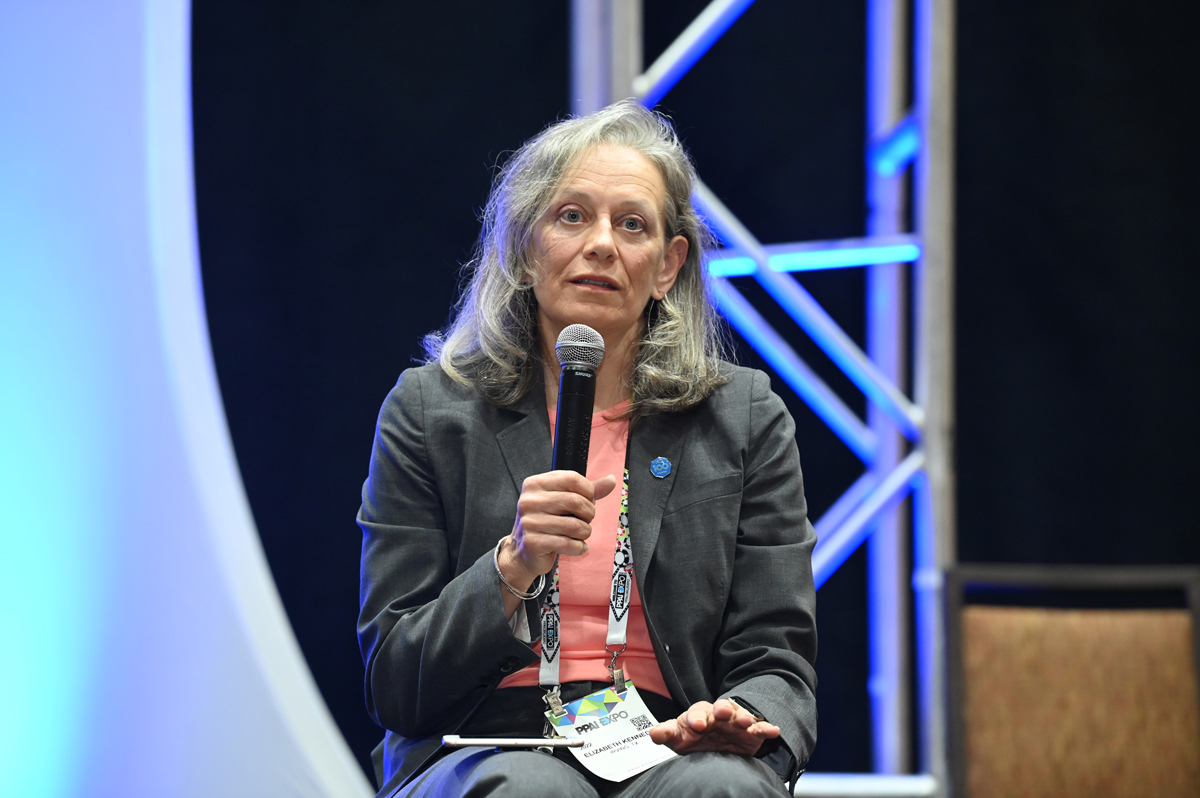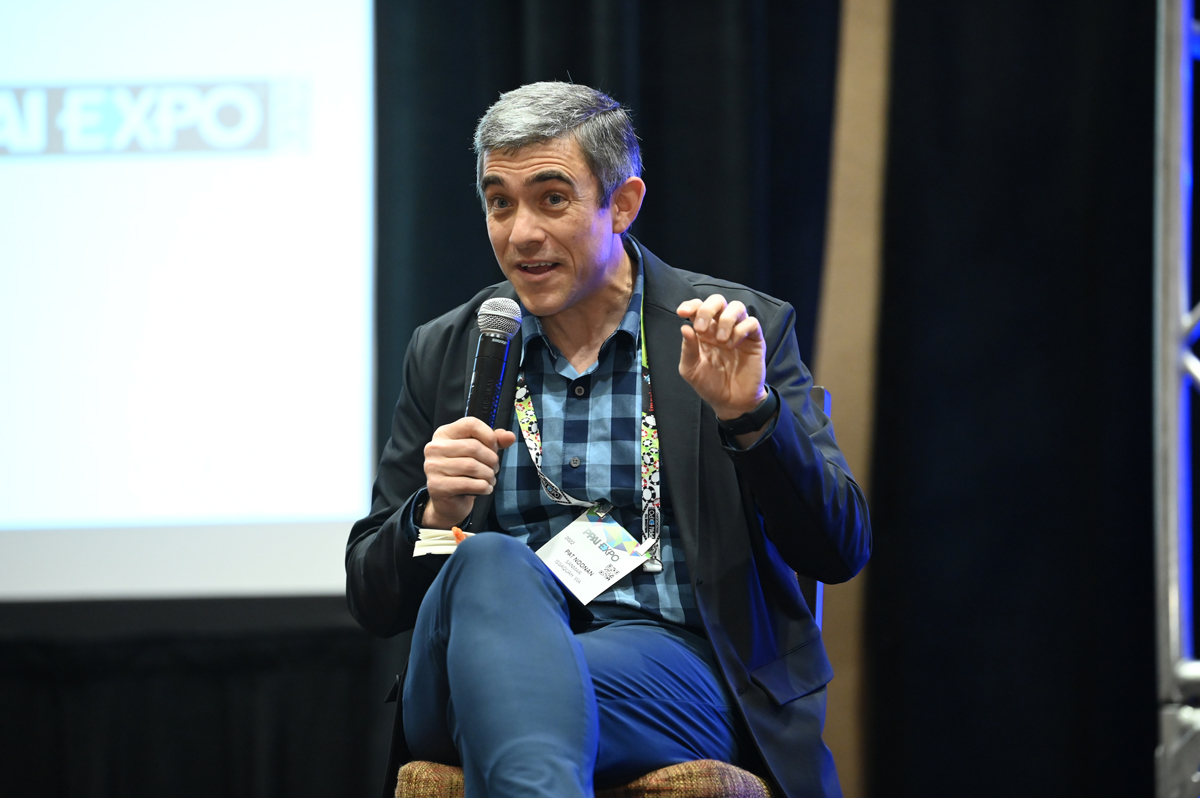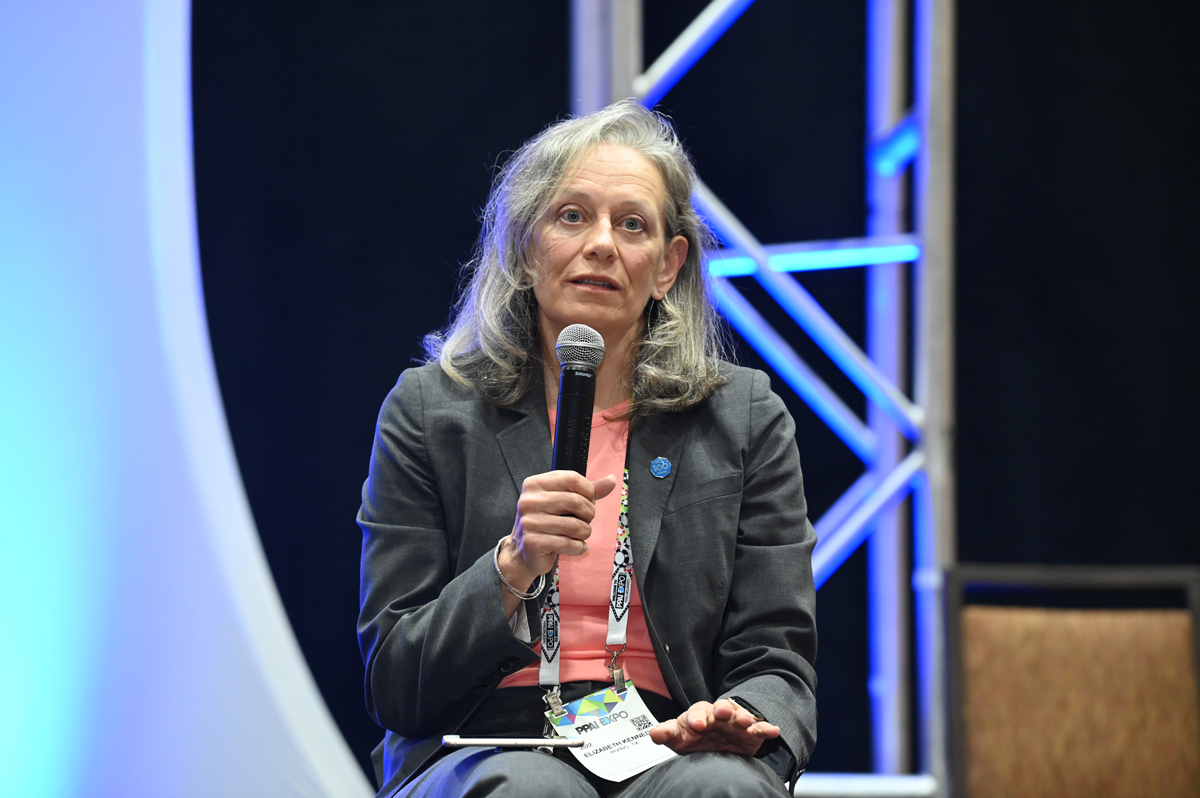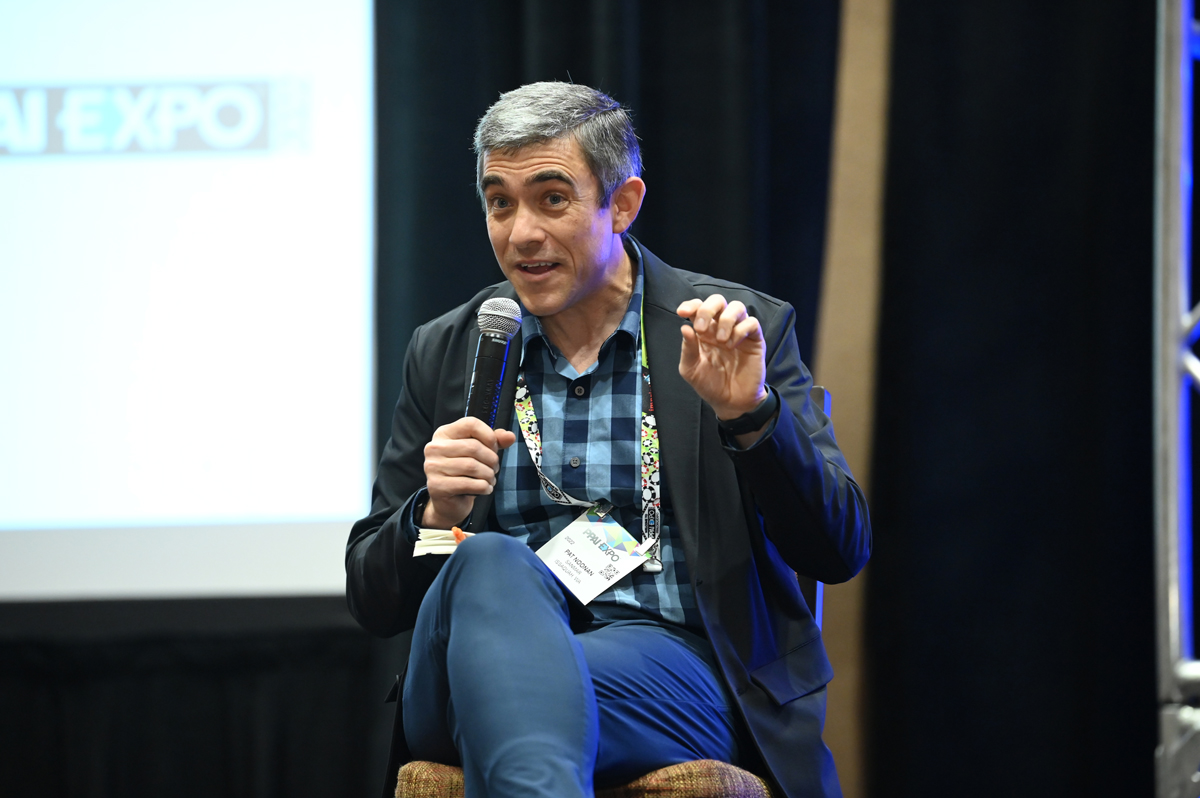CSR Panelists Say Global Realities Are Unavoidable For Promo Businesses
In a breakout session during Monday’s educational program at The PPAI Expo in Las Vegas, speakers made it clear that issues of concern for people around the world are already affecting the promotional products marketplace, and will only continue to create important impacts.
The panel, titled “Corporate Social Responsibility (CSR) In Our Industry: Where Are We Headed,” included SanMar Chief Product Officer Pat Noonan and Liz Kennedy, director of ethical labor and sustainability for the University of California-Los Angeles Trademarks & Licensing, discussing topics ranging from carbon-conscious production, to packaging waste and ongoing concerns over forced labor in China and elsewhere. In December, President Joe Biden signed into law a bill banning all imports from China’s Xinjiang province, under the presumption that all goods from the area are produced with forced labor. Xinjiang, where the largely Muslim Uyghur minority has been subject to what the United States considers human rights violations at the hands of the Chinese government, is the country’s largest producer of cotton, a vital commodity for apparel makers.
“Xinjiang feels really far away for those of us sitting here in this room,” Noonan said. “But the price of t-shirts is going up. The price of sweatshirts is going up. … Xinjiang grows 80 percent of China’s cotton supply, and China grows 20 percent of the cotton for the world.”
Noonan likened suppliers’ inability to buy cotton from Xinjiang to oil companies not being able to purchase from the Middle East. “It’s impacting our industry and creating real challenges,” he said. Professionals can learn more about the potential use of forced labor in the creation of a product by visiting KnowTheChain.org, Kennedy said.
The panelists agreed that no matter an individual’s opinion or apathy toward any particular global issue, the effects on promotional products businesses are unavoidable. But they also create opportunities. For instance, Kennedy noted that younger generations are more concerned about climate issues, which shapes their preferences and buying habits.
“If you visit a campus, you’ll see almost every student carrying a water bottle instead of a single-use [cup], carrying straws, carrying utensil kits,” Kennedy says.
As important as any desire to do the right thing for people and the planet, profits drive companies’ pursuit of socially responsible practices. Outside of the promotional products industry, many of the world’s largest companies tout their efforts toward CSR. The expectation is that market forces will increasingly require distributors and suppliers alike to keep up as clients recognize CSR as a greater part of the value proposition from their purchases.
“Turning your back on that opportunity is just turning your back on great business, a great revenue source,” said Noonan.
One of the most important ways for promotional products companies to implement CSR practices is through reducing packaging waste, said panel moderator Anne Stone, CAE, PPAI’s director of advocacy, member engagement and education.
“The product is the product,” Stone said. “But I think if we look at how we package that product, that is an easy first step toward at least reducing the [carbon] footprint and the waste.”
Another way to reduce carbon footprint identified during the discussion was purchasing carbon offsets. Noonan predicted that it would be less than a decade before buyers will know the environmental sustainability score of any product they purchase.
PPAI members can receive education and training on advancing their CSR initiatives by visiting ppai.org/corporate-responsibility. In December the Association hosted a webinar on supply chain mapping and traceability, which is available to be viewed on demand.





